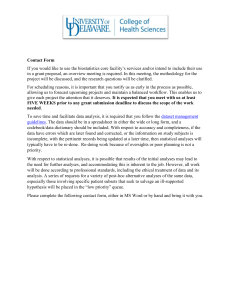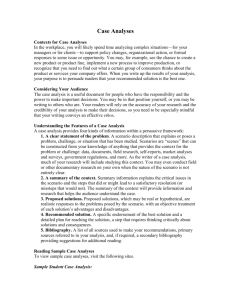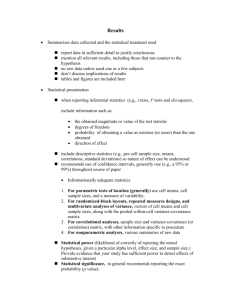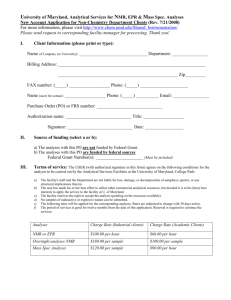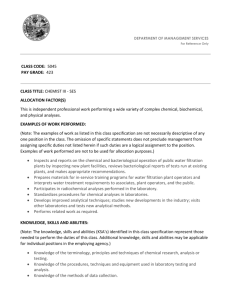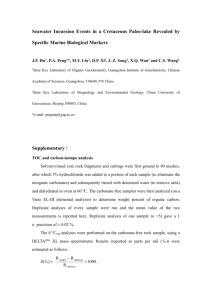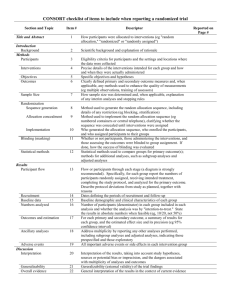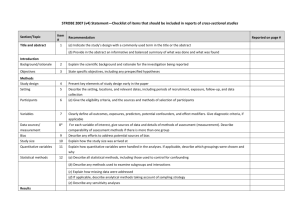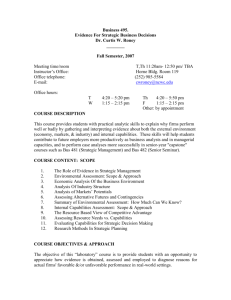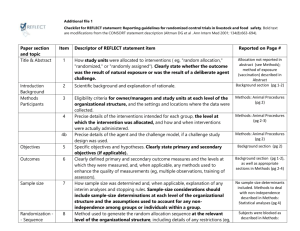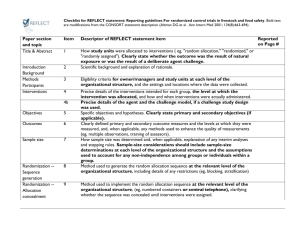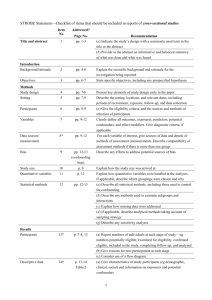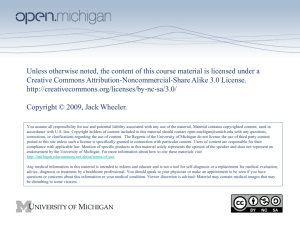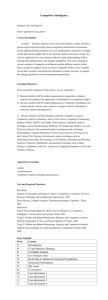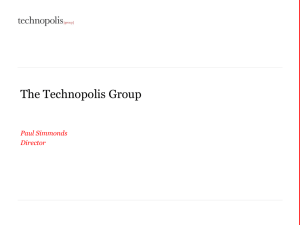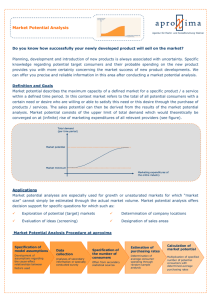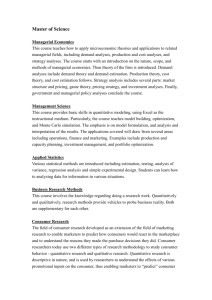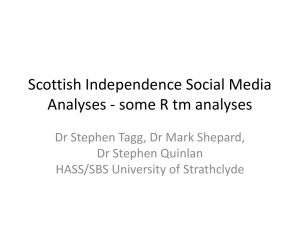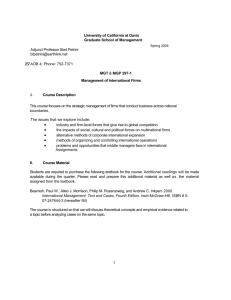Workshop 7 - Highbury College
advertisement
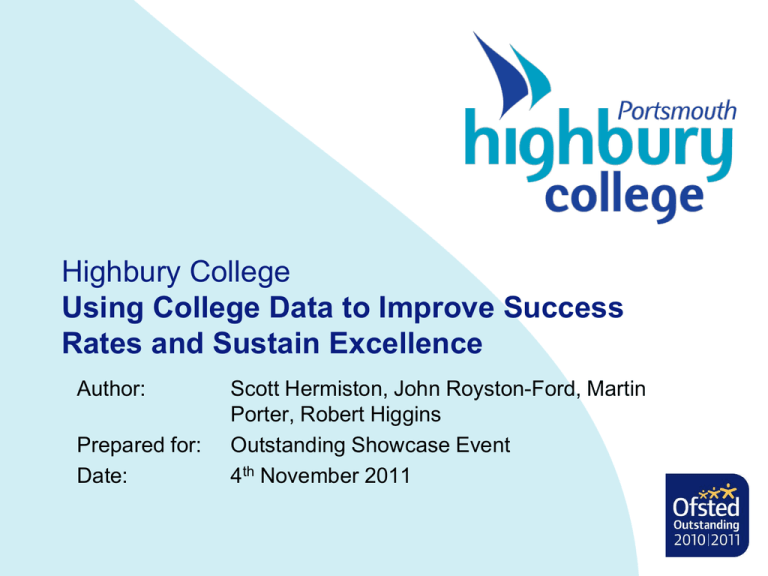
Highbury College Using College Data to Improve Success Rates and Sustain Excellence Author: Prepared for: Date: Scott Hermiston, John Royston-Ford, Martin Porter, Robert Higgins Outstanding Showcase Event 4th November 2011 Agenda • • • • • • • Welcome and Introductions Availability and use of data Whole College, Departmental and Team analyses Target Setting Support Service Impact Analyses Success Meetings How did we get here? Availability and Use of Data Student records system (EBS) has an interrogation and reporting application available to all staff with realtime information Funding and participation data published weekly to academic and support heads ProAchieve is updated on a weekly basis during the year and then on-demand in September-November (at least twice a week, sometimes every day) ProAchieve used by all levels of academic staff for analysing retention and success – brings a more personal involvement in data quality assurance Everyone has a role to play in getting the data right College, Department and Team Analyses Analyses of retention and emerging success are published to CLT Business Results monthly meetings, at College, SSA, Department and Team level Student success is measured for equality and diversity indicators, plus a suite of markers that have some history or have been identified as possible issues (bike thefts, ‘Jack’, IoW residents, etc) Support Services tasked with helping departments to tackle emerging issues Where necessary, monitoring meetings put in place inyear to check progress of students in teams with lower than average success rates Target Setting Departmental success rate targets are set centrally. Separate targets set for Good, Successful and Outstanding performance Targets set at department level for long (split by level), short (total) and very short (total) qualifications Separate targets for Functional & Key Skills and HEFCE provision Rationale is published, and uses the GFE sector 90th percentile projected to the year in question with the proviso that success rates don’t decline Targets are built to ensure that the College’s overall targets are met or exceeded Support Service Impact Analyses Support Services are required to monitor the effect of their services upon student success Part of monitoring involves performance data analyses for target groups for the Service The College identifies cohorts of students with relatively lower success rates for intervention • Victims of bicycle thefts • Young parents / carers • Pregnant teenagers • Poor or sporadic attenders CI provides data analyses for cohorts Success Meetings Annual meeting for every Academic Department and Support Service, chaired by the Principal with the Executive Director (Curriculum), Head of Quality and Head of College Information. Heads are asked to invite their staff to attend. Academic agenda includes a line-by-line analyses of success rates in LR, ER, HE, Functional & Key Skills, Value Added and performance overall against targets. Support agenda is about impact of the Services’ success projects – with evidence to support findings. How did we get here? • Whole College approach to student success • League table publication fostering competition • Extensive use of external data sources for internal comparisons • Researching student achievement for patterns or common identifiers between groups of nonachievers • Academic ownership of their success data down to individual student level, and responsibility for explaining it at the Success Meetings • Excellent working relationships between academic departments and support services
